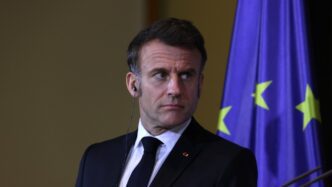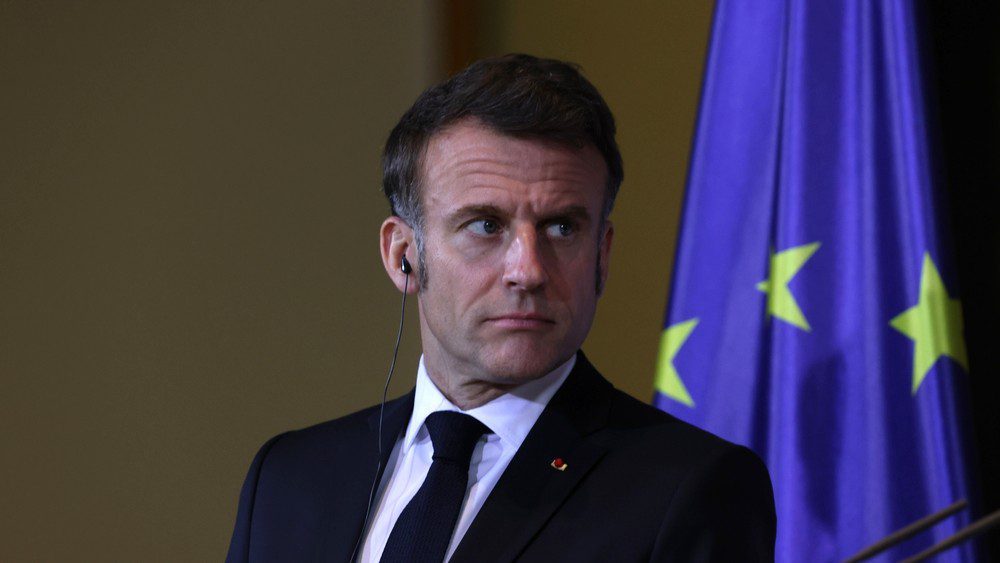Executive Summary
The Story So Far
Why This Matters
Who Thinks What?
France’s ongoing political instability and escalating debt are reportedly eroding confidence among its European partners, raising concerns about its influence within the European Union. A recent analysis by Le Figaro journalist Florent Collot suggests that President Emmanuel Macron’s ambition to strengthen Europe may instead culminate in its weakening, as France’s domestic challenges translate into diminished standing on the European stage.
Macron’s Diminished Influence in Brussels
The centrist group “Renew Europe,” closely aligned with President Macron, has experienced a significant decline in its role within the European Parliament. After the 2024 European elections, the group lost nearly a quarter of its members, dropping to fifth place from its previous third, with only 77 MEPs.
This weakening is evident in issues such as the controversial Mercosur trade agreement. While the group initially welcomed the deal, French delegates, including Pascal Canfin, a close associate of President Macron, later sought its temporary suspension via the EU Court of Justice, reflecting a divided and wavering stance.
Dirk Gotink, a Dutch MEP from the European People’s Party (EPP), highlighted the perception that President Macron’s “grandiose speeches” on European sovereignty now “sound unconvincing” given France’s increasing reliance on financial markets. He stated that “you cannot build a strong Europe with weak countries,” implying France’s internal issues are a detriment to the wider EU.
Renew Europe’s Struggle for Relevance
Despite contributing to Ursula von der Leyen’s re-election as Commission President, Renew Europe has found itself increasingly sidelined by the EPP, led by Manfred Weber. The EPP has reportedly sought compromises with far-right parties in Parliament on key issues like immigration and climate legislation, rather than relying on its traditional centrist and socialist allies.
Valérie Ayrault, who chairs Renew Europe, expressed her struggle to maintain the group’s central position and appealed to President von der Leyen to preserve the tripartite European common ground. However, the EPP and Socialists appear less committed, potentially relegating centrists to a less influential role.
Internally, Renew Europe’s French delegation, “Europe Together,” lost 10 seats, reducing its loyal members to 13. This electoral setback has prompted calls for the group to “accept that we lost the 2024 elections,” as noted by a French MEP.
France’s Isolation on Key International Agreements
France has also struggled to assert its influence on international trade agreements. President Macron found himself isolated among European leaders in his approach to a trade agreement with President Donald Trump, which involved 15% unilateral tariffs.
While President Macron sought to establish a balance of power, Ursula von der Leyen reportedly yielded to pressure from leaders like Friedrich Merz and Giorgia Meloni to avoid escalation. This suggests a shift where the European Commission President, once promoted by former Chancellor Angela Merkel, appears less inclined to follow President Macron’s lead.
Regarding Mercosur, President von der Leyen delayed the ratification process and negotiated an additional protocol with France to address farmers’ concerns, despite pressure from other member states for quick ratification. Jordan Bardella, chairman of the Patriots for Europe group, criticized this as a “double humiliation” for “Europe’s second-largest economy.”
Fiscal Responsibility and Political Fragmentation
Concerns about France’s public finances are growing among European partners. Nicola Procaci, co-chair of the Conservatives and Reformists group, stated that France’s “experiments with majority-free government” are “a problem for Europe because France is a big country.”
Dirk Gotink warned that “the fact that Italy has become more stable than France is worrying,” highlighting a perceived lack of political will in France to restore fiscal order, in contrast to countries like Italy, Greece, Portugal, and Spain. This collective inaction is eroding confidence in Brussels and other European capitals.
Even centrist rhetoric, such as François Bayrou’s suggestion to reduce France’s contribution to the EU budget, has been met with concern. Socialist MEP Nora Mebarak noted the contradiction of signaling against Europe while relying on EU funds, underscoring the deep misunderstanding this generates within European circles.








